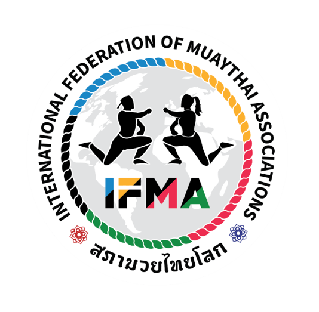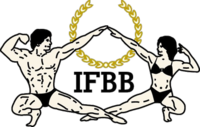
Bodybuilding is the practice of progressive resistance exercise to build, control, and develop one's muscles via hypertrophy. An individual who engages in this activity is referred to as a bodybuilder. It is primarily undertaken for aesthetic purposes over functional ones, distinguishing it from similar activities such as powerlifting, which focuses solely on increasing the physical load one can exert.

The IFBB Pro Arnold Sports Festival, also known as the Arnold Schwarzenegger Sports Festival, is an annual multi-sport event consisting of professional bodybuilding, strongman, fitness, figure and bikini weekend expo. It was established in 1989 and is named after Arnold Schwarzenegger. The main event is held annually around late February or early March in Columbus, Ohio, by the International Federation of Bodybuilding and Fitness Professional League. It is considered the second-most-prestigious event in professional men's bodybuilding, physique, figure and bikini after Joe Weider's Olympia. When the Ms. International competition was hosted, until 2013, it was the second-most-prestigious event in professional female bodybuilding.

The Fédération Internationale de Volleyball, commonly known by the acronym FIVB, is the international governing body for all forms of volleyball. Its headquarters are located in Lausanne, Switzerland, and its current president is Ary Graça of Brazil.

The International Skating Union (ISU) is the international governing body for competitive ice skating disciplines, including figure skating, synchronized skating, speed skating, and short track speed skating. It was founded in Scheveningen, Netherlands, in July 1892, making it one of the oldest international sport federations. The ISU was formed to establish standardized international rules and regulations for the skating disciplines it governs, and to organize international competitions in these disciplines. It is now based in Switzerland.
Female bodybuilding is the female component of competitive bodybuilding. It began in the late 1970s, when women began to take part in bodybuilding competitions.

The Mr. America contest is a bodybuilding competition started by the Amateur Athletic Union (AAU). It was first held on July 4, 1939, and the winner was named "America's Best Built Man". In 1940 this was changed to what is now known as the Mr. America contest. In the mid-1940s, Joe and Ben Weider started the IFBB as an alternative to the AAU. They held their opposing contest, the IFBB Mr. America, in 1949 and then from 1959 through 1977. Rights to the Mr. America name have been sold several times after AAU discontinued holding the contests in 1999.

Ritva Tuulikki "Kike" Elomaa is a Finnish professional female bodybuilding champion, pop singer, and member of the Finnish Parliament.

The IFBB Professional League Ms. Olympia is professional bodybuilding's most prestigious competition and the title of the winner of the competition in female bodybuilding. It was first held in 1980. It was held as part of the Joe Weider's Olympia Fitness & Performance Weekend from 2000 to 2014 and currently from 2020 to the present.

United World Wrestling (UWW) is the international governing body for the sport of amateur wrestling; its duties include overseeing wrestling at the World Championships and Olympics. It presides over international competitions for various forms of wrestling, including Greco-Roman, Freestyle, Grappling, as well as others. The flagship event of UWW is the Wrestling World Championships. The UWW was formerly known as FILA, having assumed its current name in September 2014.
Professional bodybuilding or pro bodybuilding can refer to bodybuilding for an income and/or possessing qualifications such as an IFBB Pro, IFBB Elite Pro or Wabba International Pro Card.
The International Federation of Bodybuilding and Fitness Professional League is the largest international professional sports governing body federation in the world for professional bodybuilding, physique, fitness, figure, bikini and wellness. It sanctions the most prestigious competitions in bodybuilding at the Mr Olympia and Ms. Olympia, and the second most prestigious competitions in bodybuilding at the Arnold Sports Festival and Rising Phoenix World Championships.

Sport in Afghanistan is managed by the Afghan Sports Federation. Cricket and association football are the two most popular sports in Afghanistan. The traditional sport of Afghanistan has been Buzkashi, which is now occasionally seen in the northern parts of the country. The Afghan Sports Federation has promoted many types of sports, including association football, basketball, bodybuilding, bowling, boxing, cricket, golf, skating, snooker, taekwondo, track and field, volleyball, and weightlifting.

Michael Kefalianos, first name also spelt Michalis and Mihalis, is a Greek bodybuilder with Greek and Australian dual citizenship who is an International Federation of BodyBuilders (IFBB) professional bodybuilder. He is widely considered to be the best Greek bodybuilder. In 2009 at the IFBB Australian Pro Grand Prix he placed fourth and became the first Greek bodybuilder to ever qualify for the Mr. Olympia competition, which is held in Las Vegas once a year in September. He has since competed in more than 35 professional bodybuilding shows, with his career highlight the 2012 Mr. Europe win in Madrid, Spain.
Mohamed "Kesto" Haleem,: މުޙައްމަދު ހަލީމް ),born on September 14, 1964, is the founder of Muscle load Gymnasium and the co-founder of BodyBuilding Federation of Maldives(BBFM). He is a Maldivian entrepreneur well known for the introduction of Bodybuilding in Maldives.

The International Federation of Muaythai Associations, or IFMA, called the International Federation of Muaythai Amateur until 27 July 2019, is a sport governing body of amateur and professional Muay Thai and Muay boran consisting of 140 member countries worldwide with 5 continental federations after unification of International Federation of Muaythai Amateur and World Muaythai Council. IFMA is officially recognised by the International Olympic Committee (IOC), the Global Association of International Sports Federations (GAISF), the Association of IOC Recognised International Sports Federations (ARISF), the Olympic Council of Asia (OCA), World Anti-Doping Agency (WADA) International World Games Association (IWGA), and Trim and Fitness International Sport for All Association (TAFISA). Muaythai has been included in many official sport programs such as the World Games, World Combat Games, Arafura Games, TAFISA Games, SEA Games, Asian Indoor and Martial Arts Games, Asian Beach Games, Demonstration Sport in the Asian Games.
Bodybuilding in the United States traces its early history to the 1860s when it was based on the east coast. By the 1940s, it had arrived in Hawaii. In the same period, the country was involved with the early internationalization of the sport. The sport had a golden age during the 1960s and 1970s when much of the activity was taking place on the west coast. Bodybuilding for women began to take off during the 1970s. A number of changes took place in the 1980s.
Bodybuilding in France dates to 1847. The country has a national federation that is a member of the European Bodybuilding and Fitness Federation and the International Federation of Bodybuilding and Fitness.

Bodybuilding in China dates back to the 1930s. It was first introduced to the Chinese in Guangzhou, when missionary school attendee Zhao Zhuguang started promoting it, having attended overseas bodybuilding courses. However, its early history was marred with controversy, and the Chinese Communist Party, led by Chairman Mao Zedong, publicly condemned the sport and officially banned it in 1953. The ban was only abolished close to three decades later; thereafter, bodybuilding contests for men started to be organised, and China became a member of the International Bodybuilding Federation in 1985. Competitions for women were held soon afterwards. China now has a national federation governing bodybuilding in the country, the Chinese Bodybuilding Association.

Akbar Khazaei is the first and only Iranian international professional bodybuilding judge. He was firstly an international amateur judge of the International Federation of bodybuilding and Fitness (IFBB) but later, he was appointed as the first professional judge of IFBB PRO bodybuilding competitions with an Iranian nationality.














